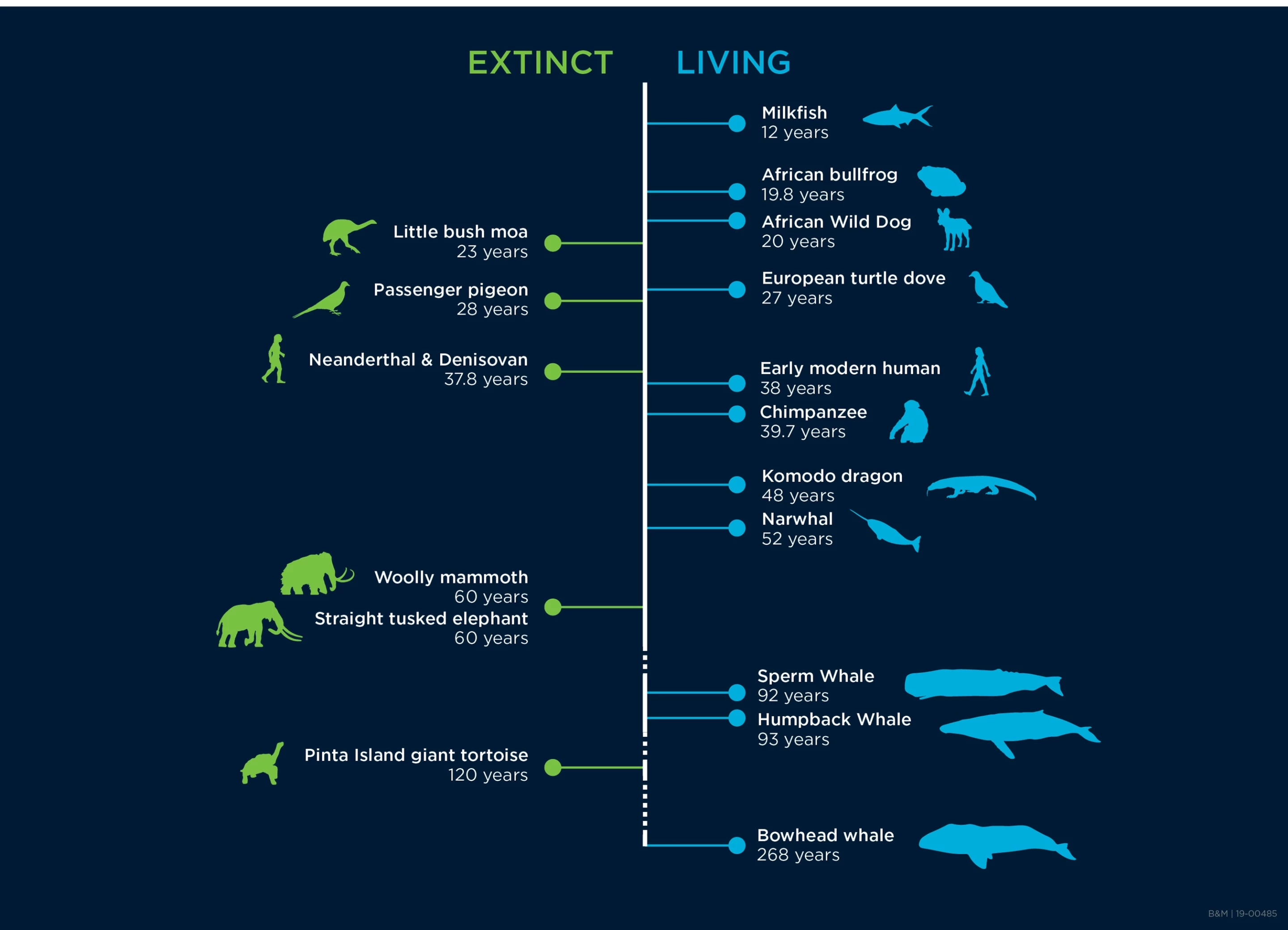Gauging the maximum lifespan of wild animals can be difficult, as scientists are limited to examining whichever creatures they happen to capture. Now, however, researchers have developed a method of determining a vertebrate species' natural lifespan, based on its DNA.
Led by Dr. Ben Mayne, a team at Australia's CSIRO research institute looked at a detectable type of DNA change, known as DNA methylation. It is the process by which methyl groups are added to the DNA molecule, and it can alter the activity of a DNA segment without affecting that segment's nucleic acid sequence.
Genes are in turn made up of DNA, and they serve as the instructions that determine an organism's overall makeup.
"DNA methylation does not change a gene's sequence but helps control whether and when it is switched on," says Mayne. "Using the known lifespans of 252 different vertebrate species, we were able to accurately predict lifespan from the density of DNA methylation occurring within 42 different genes."

Interestingly, it was found that the maximum natural lifespan of modern humans is just 38 years. The fact that people typically live longer is likely due to changes in lifestyle since our cave-dwelling days, along with advances in medicine.
It was also determined that the lifespan of wooly mammoths topped out at 60 years, while the maximum lifespan of the bowhead whale is a whopping 268 years – that's actually 57 years longer than was previously believed.
A paper on the research, which also involved scientists from the University of Western Australia, was recently published in the journal Scientific Reports.
Source: CSIRO





